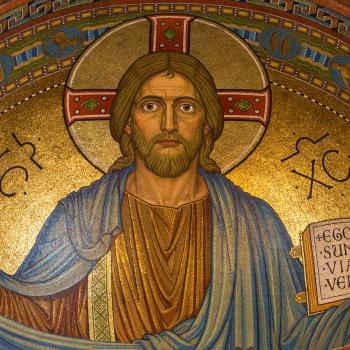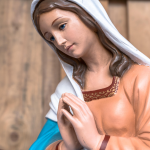At this point, most of us have heard about The Tradinistas, but for those that haven’t, they are a group of self-described, Orthodox Catholic socialists committed to “a politics of virtue and the common good.”
They made their introduction to the world on September 23rd of this year by releasing a manifesto which laid out 20 foundational values of the movement. These included a reiteration of basic Catholic beliefs—such as Christ’s kingship on earth, opposition to abortion, and dedication to the Church—alongside strong notions of anti-capitalism, anti-classism, and labor rights.
Since that time, the Tradinistas have made waves throughout the Catholic blogosphere, garnering both positive and negative reactions. Yet, outside of a few posts to their website, not much is known about the group, and most of what has been written about them is little more than speculation.
So who are they, really? Better yet, what do they hope to actually achieve?
According to one member—identifying herself simply as Maria—the Tradinistas aren’t looking to raise a worker’s revolt any time soon, or even involve themselves in conventional politics, at least not now. While the downfall of capitalism and liberalism (in the classical sense) are certainly on the agenda, their sights are currently set on encouraging social justice and change on a local level.
“Our first goal is to start asking questions,” Maria said. “What does it look like to be faithful sons and daughters of the Church? What do we need to be addressing that we are not? Who are we overlooking? What can we do better? We want people to be engaged on a local level and in their daily lives.”
Perhaps the most intriguing—and important—aspect of the Tradinistas is that they strive to be more of an idea instead of a structured entity. And that wasn’t by accident. Maria says that the Tradinistas are bigger than just people. It’s a movement open to any like-minded individuals who want to take up the banner and start something.
“There defiantly has been a small core of people to create website, write, etc., but we don’t want to be limited to that,” she said. “If someone in Wyoming wants to call themselves a Tradinsta and start something in their parish, or start an encyclical reading group, or a credit union in the parish so people don’t have to use lenders, or take parts in acts of service and not be involved online, that is more than fine with us. In fact, that’s what we should all be striving for.
Aside from promoting themes of social justice and out-side-the-box thinking, Maria says the Tradinistas look to stand in solidarity with other movements around the country, such as Black Lives Matter—a group that’s similar in structure.
“Some members (of Black Lives Matter) feel like Christianity has been more oppressive and ignored the black community. That frustration is something we could really speak too.”
The Socialist Problem
Despite the heavy influence of Orthodoxy and Catholic Social Teaching, the group has not escaped criticism for their blatant willingness to identify as socialists, especially considering that past Popes, such as Leo XIII and John Paul II, have condemned the ideology.
The harvest of misery is before our eyes, and the dreadful projects of the most disastrous national upheavals are threatening us from the growing power of the socialistic movement. They have insidiously worked their way into the very heart of the community, and in the darkness of their secret gatherings, and in the open light of day, in their writings and their harangues, they are urging the masses onward to sedition; they fling aside religious discipline; they scorn duties; they clamor only for rights; they are working incessantly on the multitudes of the needy which daily grow greater, and which, because of their poverty are easily deluded and led into error. — Leo XIII, Graves de Communi
Yet, the Tradinistas seek to make an important distinction between their own definition of socialism and the socialism criticized by the Popes:
“Several definitions could perhaps be offered, but a modified version of that given by Karl Polanyi will suffice for our purposes here. On this view, “socialism” refers to an economic system which, transcending the self-regulating market, subordinates a significant part of it to communal control.1
Several points about this definition should be noted. Socialism, first of all, is here distinguished from capitalism not primarily by property relations, but rather by how economic life is regulated – by means of a more-or-less autonomous market or by the community. All that follows from our definition is that property rights are not absolute. Second, the nature of this “communal control” is likewise quite open-ended, from worker councils in a stateless society to a highly centralized nation-state. This definition, third, implies nothing about the existence of markets, but only about the absence of self-regulating markets in relation to significant parts of social life. Hence socialism can certainly include markets, but only markets that are put in their proper place. Left unspecified is also the nature of this “subordination,” which could entail regulation by either a bureaucratic state, direct democracy, or a loose confederation of workers’ cooperatives; and such regulation could be either formal (setting limits to the market) or substantive (such as in central planning). Finally, this definition conceives of socialism only as an economic system, not as a comprehensive philosophy.” — A Catholic Socialism? Part 1
They go on to point out that what the Popes criticized was only a singular (albeit prevalent at the time) definition:
“When the popes condemned “socialism,” what they condemned was a socio-economic system marked by some or all of the following features: rejection of authority; absolute equality; debasement of marriage and the family; denial of a right to/abolition of private property; common ownership of all property; violent class struggle unconstrained by ethics or law; envy of the rich; society as existing only for material advantage; man as only a molecule in the social organism; and atheism.While certain forms of socialism may indeed contain some or all of these features, other forms of socialism need not – and, importantly, socialism as such need not. Articulating a definition of “socialism” that captures what is common to its many species, we said that “socialism” refers to an economic system which, transcending the self-regulating market, subordinates a significant part of it to communal control. In this generic definition, socialism falls under none of the popes’ condemnations. Any actually-existing socialism, of course, will have to give concrete content to this definition; but, as we have already indicated, there are many ways of providing such content that do not run afoul of the popes’ criticisms of “socialism.” So yes – a Catholic may be a socialist.”
A Growing Movement
Despite hundreds of online members spread across the country—with even more offline, Maria says the group was a bit surprised at the amount of immediate publicity.
“This whole thing has gotten a lot more attention than we thought it would,” she said. “There are so many questions we know we have to consider. We’re still talking, still finding people, and still finding ourselves.”
The group is also being very careful in their approach, as to assure long term survival and avoid being absorbed and dismantled by the very institutions they’re rallying against.
“Capitalism and liberalism have a knack for sucking up movements,” Maria said.
Still, the Tradinistas are optimistic about the movement’s future, especially for the Millennial generation—of which Maria, and many Tradinistas, are a part, and she feels more and more people are waking up to the consumption of ideas.
“Our generation is much more skeptical, which definitely frustrates the political process.”
**Author’s note: While I have made no attempts to hide my own left-leaning views, this article is not an official endorsement of the Tradinistas and their political ideology.**















